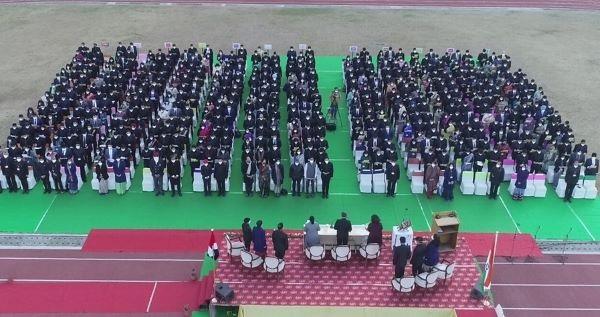Government of India is amending the IAS (cadre) Rules, 1954, ex-bureaucrats suggest recalling before retirement

R Krishna Das
In the midst of a mounting clash between the Centre and the States boosting the bureaucrats to take the latter’s side, it is inevitable now to redefine the All India Services (AIS).
Given the growing influence of the regional political parties, the feud in the federal structure of India is imminent. And the AIS officials acting as state recruits is posing a bigger challenge.
In recent times, a few AIS officials have dared to keep the established protocols at bay; literally to please the political dispensation in the state they have been allotted. The former Chief Secretary of West Bengal, Alapan Bandyopadhyay and former Director General of Punjab Police S Chattopadhyaya stand as an example.
Bandyopadhyay openly showed the courage to follow Chief Minister Mamata Banerjee to walk out from the official meeting of the Prime Minister. The 1986-batch IPS officer from Punjab cadre Chattopadhyaya’s reaction to the security breach of the country’s Prime Minister was lull.
The AIS include the Indian Administrative Service (IAS), Indian Police Service (IPS) and Indian Forest Service (IFS). The Department of Personnel and Training (DoPT), the home ministry and the environment ministry are the cadre-controlling authorities for the three respectively.
The IAS and the IPS were created after Independence — the Indian Forest Service joined the two in 1966 — under Article 312 of the Constitution in order to create a pool of administrators and law enforcers common to the Union and states.
The officers recruited by the UPSC are appointed by the President of India, thereby making the Government of India their appointing authority. Several of the powers of the Centre over AIS officers flow from the fact that it is their appointing authority. The examination of powers of the state and the central governments across nine parameters that include number of officers to be recruited, recruitment, appointment, cadre allocation, training, transfers and postings, empanelment and central deputation, extensions, and disciplinary proceedings.
Interestingly, in at least eight, the Centre enjoys a preponderance of power over the officers. But still, the AIS officers work as the state government employees, challenging the authorities of the Centre. It is now high time to redefine the AIS and make the officers more answerable towards their employer.
According to senior former bureaucrats, the Centre recalling the AIS officers ahead of their superannuation could be the best option. For, the post retirement procedures that include pension are fixed by the state government. Above all, the AIS cadre also gets attractive post-retirement rehabilitation by pleasing who’s who in state power. “These are a few reasons that make officers inclined more towards the state government and confront the Centre,” the former bureaucrats added.
However, the Government of India has started the process and has mooted a proposal to amend the IAS (cadre) Rules, 1954. The DoPT has sent the draft amendment to the state governments requesting to furnish comments latest by January 25, 2022.
According to the draft proposal, the Central Government shall decide the number of officers for Central deputation in consultation with the state. In case of any disagreement, the matter shall be decided by the Central Government and the state government or state governments concerned shall give effect to the decision of the Central Government within a specified time.
The proposed amendment said that in specific situations where services of cadre officers are required by the Central Government in public interest, the Central Government may seek the services of such officers for posting under the Central Government or under a company association or body of individuals, whether incorporated or not, which is wholly or substantially owned or controlled by the Central Government and State Government concerned shall give effect to the decision of the Central Government within the specified time.
The draft added further that wherever the state government concerned does not give effect to the decision of the Central Government within the specified time, the officers shall stand relieved from cadre from the date as may be specified by the Central Government.



